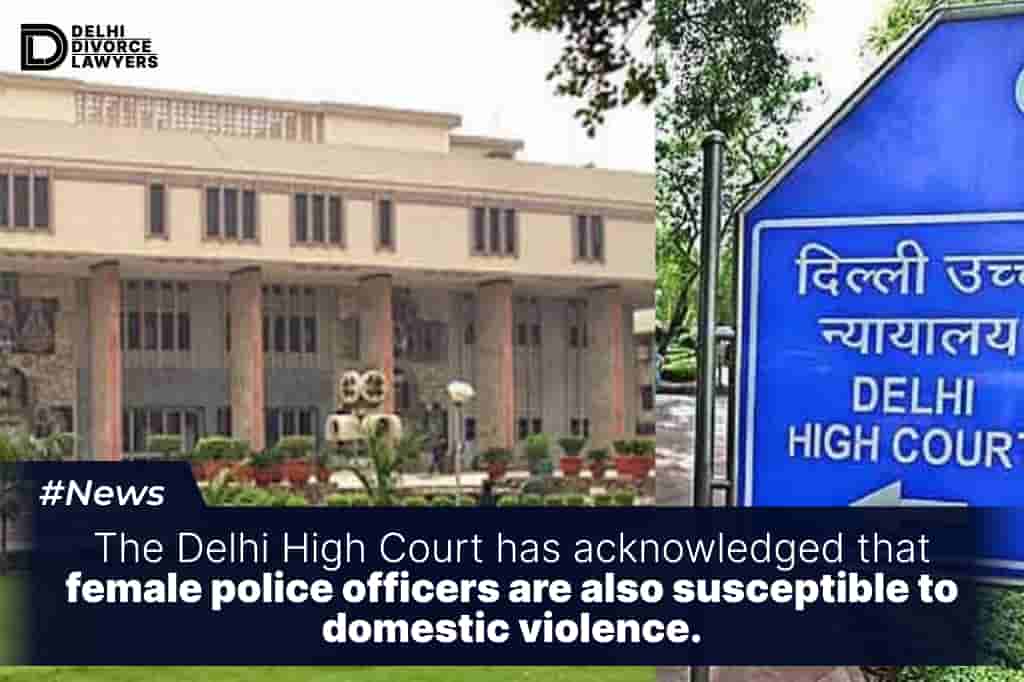The Court said that to make assumptions that a woman, by virtue of her profession as a police officer, cannot possibly be a victim in her own personal or matrimonial life, is a form of injustice.
The recent stance by the Delhi High Court underscores that domestic violence can impact individuals across all professions, including police officers. This assertion was highlighted in the case Sanghmitra v State, where the court urged against gender biases or preconceived notions tied to specific careers.
In a significant overturn, the High Court reversed a sessions court’s ruling dismissing a man from a case involving accusations of cruelty towards his wife. The sessions court had absolved the accused of charges under Sections 498A (cruelty) and 34 (act done with common intention) of the Indian Penal Code (IPC), citing the professional backgrounds of both the husband and wife, who were police officers.
However, Justice Swarana Kanta Sharma of the High Court emphasized that judicial decisions concerning criminal charges should remain impartial to gender or occupational stereotypes. The High Court cautioned against presumptions that individuals in particular professions consistently adhere to societal expectations, labeling such assumptions as unjust and biased.
Furthermore, the court stressed that it would be unjust to assume that being employed as a police officer provides immunity against experiencing domestic violence.
“Moreover, the present case also presents a contradictory view where both the husband and the wife are working on equal status/ post in Delhi Police, however, the position of the wife as police officer has been held against her observing that since she is a Police officer, she cannot be intimidated, harassed, dowry cannot be demanded from her, she cannot be tolerant in order to save her marriage, totally ignoring her specific allegation and submission that she had kept on waiting and hoping her return to her matrimonial home and saving her marriage. Conversely, it has been held that since the accused husband is in Police, he will not intimidate his wife,” the Bench added.
Justice Sharma also tackled the issue of “implicit biases,” underscoring the crucial importance of upholding “gender neutrality in judicial decision-making.”
“The present case of a female police officer, deemed incapable of being victimized, solely due to her profession is an illustration of the insidious nature of our hidden biases. To harbor assumptions, especially as a judge, that a woman, by virtue of her profession as a police officer, cannot possibly be a victim in her own personal or matrimonial life, is a form of injustice of its own kind and one of the highest kinds of perversity which can be seen in a judgment. Judicial decisions, premised on such assumptions, are examples of court’s refusal to recognize the complex realities of people’s lives, and defiance of law, logic and empathy,” the Court said.
The High Court was presiding over a case of marital cruelty where initially, a magistrate had levied charges against the accused police officer and his relatives. However, a sessions court subsequently overturned the magistrate’s ruling and acquitted the accused.
Following this, the woman, who was the complainant in the case, appealed the sessions court’s decision before the High Court. Upon review, the High Court noted that the sessions court’s decision to exonerate the accused was largely influenced by the complainant’s profession as a police officer, leading to the assumption that the alleged offense could not have been perpetrated against her.
Justice Sharma criticized the sessions court for adopting such a biased perspective, expressing dismay that it overlooked the specific instances of dowry demands and mistreatment reported by the complainant. Additionally, the Court stressed the significance of acknowledging the unique dynamics present in cases involving domestic violence or cruelty, particularly when the victim holds a position of authority as a woman.
“To dismiss the sufferings of women in positions of authority as mere fabrication or deceit would be grave injustice to victims of domestic violence, and holding so would also be equal to holding that no woman who is either a police officer or an officer of administrative services or even a judicial officer or any other woman considered empowered by societal norms or in a position of authority or dominance will ever be considered as a victim. Therefore, a court of law cannot make sweeping generalizations about the credibility of the allegations levelled in a complaint on the basis of the gender of the victims and their professional stature,” the High Court said
The High Court also stressed the importance of integrating gender sensitivity into judicial training.
“Given the complexity of contemporary legal disputes, particularly in matters where there may not be only two genders but more in view of different sexual orientations and preferences, the judicial academies, which carry the most important burden of training their own protégés, must include in their curriculum the chapters addressing the perils of unrecognized gender and other biases which get reflected in the judgments.”
As a result, the Court encouraged the Delhi Judicial Academy to integrate subjects such as gender equality and cultural diversity into its curriculum and continuous judicial education programs.

